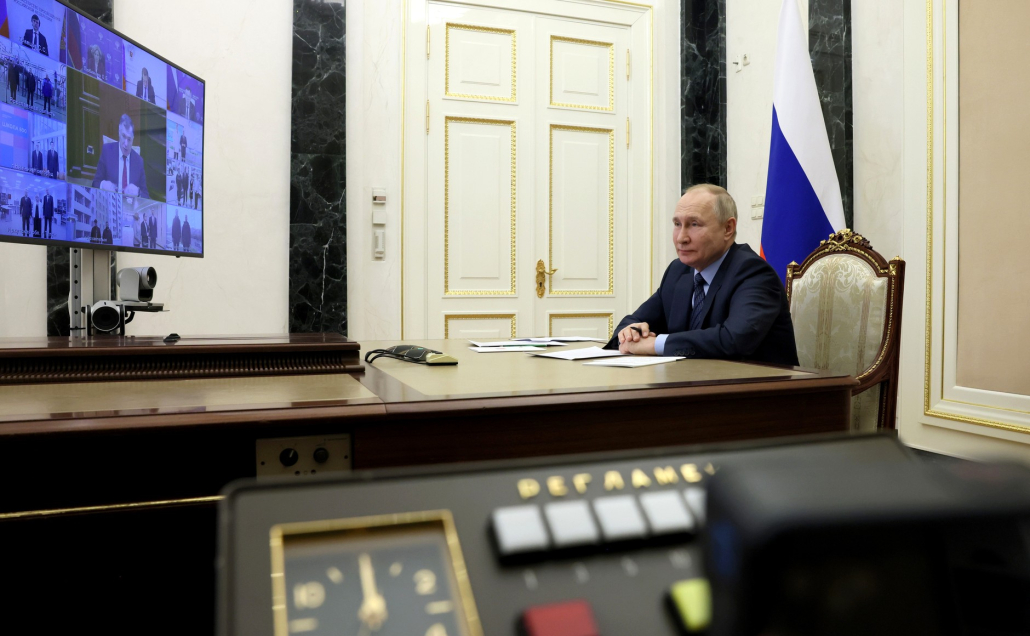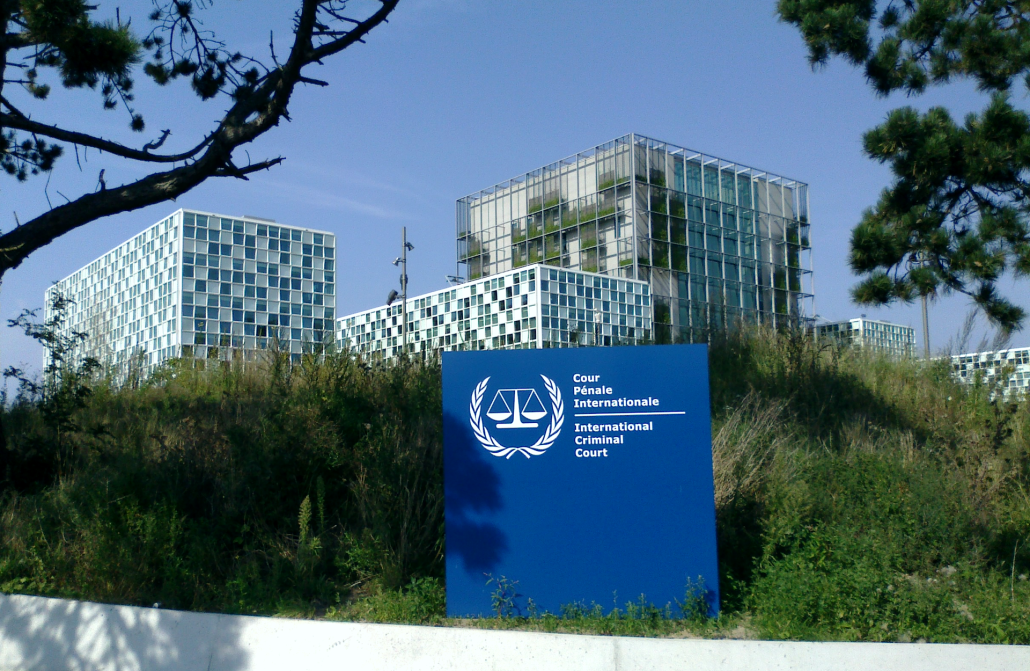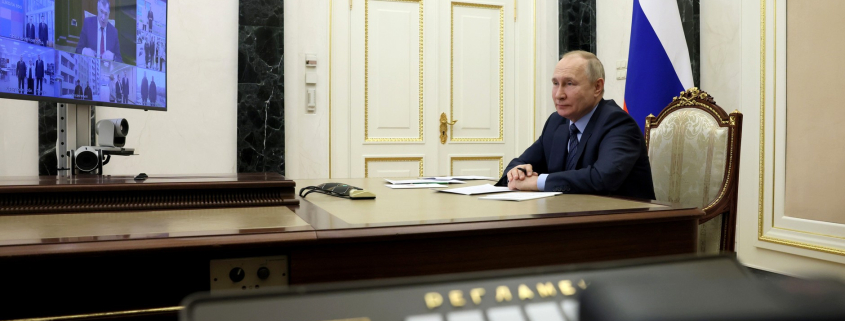Experts talk arrest warrant against Putin

The International Criminal Court filed a warrant March 17 for the arrest of President of Russia Vladimir Putin and Alekseyevna Lvova-Belova, the presidential commissioner for children’s rights in Russia, for alleged war crimes relating to the deportation of Ukrainian children to Russia. The Daily Trojan spoke with USC experts in international relations and law to get a better sense of what the action signifies to the international community, as well as how the matter is being taken closer to home.
Russian authorities under Lvova-Belova’s direction, the ICC alleged, seized Ukrainian children from border cities and put them up for adoption by Russian families — often telling them that they weren’t wanted by their parents. The effort was allegedly part of a wider attempt to integrate them as Russian citizens.
The warrant operates under the authority of the Rome Statute, an ICC treaty that defines and addresses four central international crimes: genocide, crimes against humanity, war crimes and the crime of aggression. The ICC in its warrant alleged Putin and Lvova-Belova committed the acts of deportation directly, jointly with or through others, and “in prejudice of Ukrainian children.” Dmitry Peskov, spokesperson for the Kremlin, has dismissed the allegations as “outrageous and unacceptable,” and the warrant “null and void.”
While the warrant will not reach every corner of the globe, the 133 countries — including 18 in the Eastern European region, a third of which directly border with Russia — who have signed onto the Rome Statute are under the legal obligation to arrest him. Notable non-signatories include Russia, China, Israel, Iraq, India, North Korea, Saudi Arabia, Türkiye, the United States and Ukraine itself.
Robert English, a professor of international relations and co-director of Central European studies, said that, while it was “highly unlikely” that the warrant would at any point lead to Putin’s actual arrest, it still had “strong symbolic meaning.”
“It reminds the world of the atrocities being committed in Ukraine, but it probably won’t have any real effect on the war,” English said. “I don’t think it’s likely he’ll be traveling to a country where he’d be at risk, and, unfortunately, even … when indicted, [not all criminals have] been arrested by countries who are signatories to the statute.”
With widespread discussion surrounding Russia’s alleged war crimes during its ongoing invasion of Ukraine, some may wonder why the deportation of children has been the only action to lead to an ICC warrant. This, English said, is a matter of direct evidence to Putin.
“A lot of the crimes and atrocities that have been committed [are] very difficult to trace, even up to senior commanders, much less to the President,” English said. “In this case, though, there was a policy, and some of [the children’s deportations] was done quite openly.”
Apart from the symbolism and travel ban that comes with Putin’s and Lvova-Belova’s potential arrest, there could also be the possibility of a special tribunal being convened, separately from the ICC, to address not only the child deportations, but also the crime of aggression against the Ukrainian border in the first place, said Steven Lamy, professor of international relations, spatial sciences and environmental studies.

“People are really disgusted with the fact that people like Putin get away with things,” Lamy said. “[There] could be a tribunal where he’s convicted, [but] the most likely scenario with a tribunal would be lower-level people being victimized.”
So far, members of the European Parliament and the U.S. State Department have supported a proposed joint tribunal to try Russian leaders on the aggression crime alongside the efforts of the ICC. Members of the European Parliament argued that “atrocities committed by Russian forces … underscore the importance of coordinated international action to bring those accountable to justice under international law,” and a tribunal would serve this purpose, filling “a vacuum in international criminal justice,” a Jan. 19 press release read.
The U.S., as a non-signatory country to the Rome Statute, has lauded the charges against Putin, yet is not under the jurisdiction of the arrest warrant itself. President Joe Biden has called the decision “justified,” and has repeatedly made public comments about the clarity of Putin’s alleged war crimes. In separate remarks to the press March 27, U.S. Ambassador-at-Large for Global Criminal Justice Beth Van Schaack likened the tribunal to the Nuremberg trials following World War II — in which “the United States led the prosecution of the crime of aggression, deemed ‘crimes against the peace’ in the lexicon of the era.”
Hannah Garry, founding director of the International Human Rights Clinic at the Gould School of Law, said there has been strong bipartisan support to cooperate with the ICC on the Ukrainian matter, but expressed doubt that Congress would currently be willing to ratify the Rome Statute.
“It is my hope that in the future, it will lead to the U.S. actually becoming a full-fledged safe party, but I don’t think that’s anywhere in the near future,” Garry said.
As calls to prosecute Putin have grown, some critics have accused the ICC and the U.S. of hypocrisy. A March 21 letter to The Guardian opined that “a more fitting description to go with its acronym is international court of cowardice.” Jeremy Scahill, writing for The Intercept, noted the irony of a country — whose Congress in 2002 passed a bipartisan bill authorizing the use of “all means necessary and appropriate” to liberate a U.S. official, soldier or contractor imprisoned by the ICC — now enthusiastically supporting prosecution of Putin’s alleged war crimes.
”We sometimes seem extremely sanctimonious in the eyes of the rest of the world,” English said. “Often the criticism [from allies and developing countries is] that these are laws written by wealthy white Europeans and only applied to Black Africans. Where’s the indictment for George Bush and Tony Blair, for invading Iraq illegally?”
Garry said that becoming more than an observer to the treaty would strengthen the U.S.’s position on foreign policy, and English cited the “business of double standards” in which the U.S. has historically engaged — “one of the weaker parts of our hand,” he acknowledged.
“[Signing the statute] would signal to the world that we’re actually putting action behind our stated policy of being supportive of accountability and justice for international crimes like genocide — and that we’re willing ourselves to be held accountable where any of our nationals would perpetrate such crimes,” Garry said.

